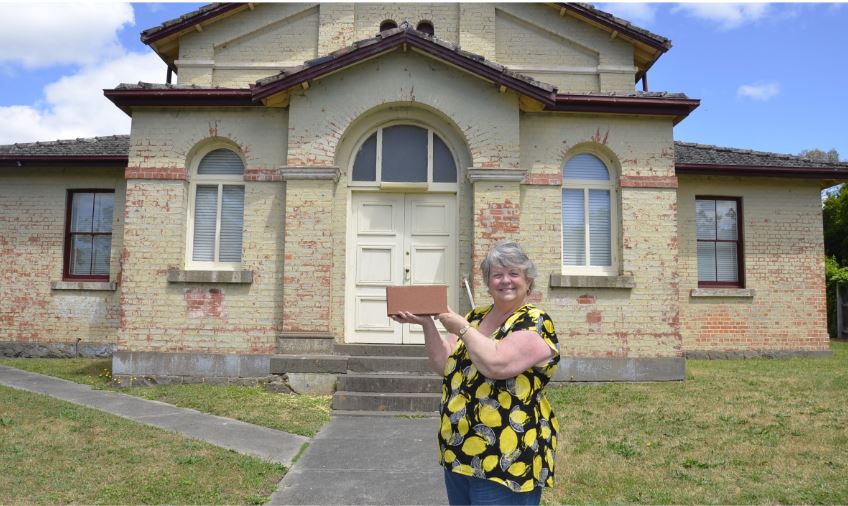February 10th, 2020Council to water bosses: Please talk to the people
WITH much of its fortune built on mineral water, the Central Highlands has entered a phase where some locals are pitted against commercial exploitation of this water.
And as shockwaves from the climate crisis continue, Hepburn Shire Council has stepped in to ask an authority to open up to the community on water mining, a move welcomed by the biggest local water business, but decried by critics who say talks with the authority have been unsatisfactory.
The company denies that its extraction has an adverse effect. And already the council has talked with this company and says it “anticipates” full compliance with the extraction permit.
After protests at council meetings, councillors will meet the authority, Goulburn Murray Water, next month to discuss water mining, as well as how GMW could communicate to the community on groundwater resource management.
GMW was unable to say how many trucks take water day and night from the Highlands. Black Mount Spring Water, whose sites include Musk, Eganstown and Springbank, says it draws less than 100 million litres annually. If the figure were 94 million, equivalent to about 37 Olympic-sized swimming pools, that would mean almost seven trucks every day.
According to GMW, less than a quarter of the legal limit has been extracted for the last eight years. This limit was set after consulting “licence holders and stakeholders,” it says.
Tim Carey runs Black Mount Spring Water, his family’s 33-year-old national business and says water for bottling accounts for about 0.5 per cent of the 1090 million litres extracted annually, with most going to irrigation, plus domestic and industrial use, including vineyards. “We’d be battling to get to 100 megalitres (100 million litres).”
Both Mr Carey and Matthew Pethybridge, of GMW, say meters are regularly monitored, a point disputed by those who oppose the mining.
Mr Pethybridge, GMW’s Groundwater and Streams manager, says any changes would involve the Loddon Campaspe Regional Water Services Committee, while variations in rights of access to water would involve “groundwater licence holders and other affected stakeholders”.
Asked when the sustainability of groundwater in the Central Highlands was last checked, he said: “The last annual reporting process was completed in August/September 2019.”
Mr Pethybridge said GMW worked with the Department of Environment, Land, Water and Planning on developing long-term sustainable water strategies, using state guidelines to assess the impact of climate change.
GMW placed high importance on the long-term sustainability of groundwater resources in the Daylesford mineral spring region, he said.
As an authority, GMW gets its money from water entitlement holders (including irrigators, urban water corporations and environmental water holders) who pay for access and use of water delivery systems and associated infrastructure.
The Local asked GMW if it knew of intense agitation among landowners near bores, including questions in State Parliament.
“GMW is focused on ensuring the future prosperity of our region by sustainably managing one of the region’s most precious assets: groundwater,” was Mr Pethybridge’s reply. “We know that water is the lifeblood of our region. GMW is aware the community places a high value on groundwater in the Daylesford area.”
Hepburn Shire Council’s Infrastructure and Development Services director Bruce Lucas also sought to reassure The Local about the monitoring and reviewing of bores. “If the review identifies an unsustainable drop in water levels due to reduced recharge or over-extraction this is reported back to the Loddon Campaspe Regional Water Services Committee and the community.”
Council staff officers recently attended an information session on groundwater management run by GMW and advocated for similar sessions to be held for the general community.
The soothing words from GMW and the council did not, however, satisfy the local group, Protect Our Waterways which wants: more information on the mining and its effect on waterways, rivers and streams; the council to enforce curfews on the B-double water tankers; and answers as to why mineral water should be treated differently to “plain” groundwater.
Black Mount’s Mr Carey insists that GPS monitors on his 38,000-litre trucks refute “mischievous” claims that they were breaking the 10pm-7am curfew. He said he had asked the council to come to Musk and see his curfew monitoring.
Mr Carey expressed frustration at what he says is uninformed criticism from “activists” who have not approached him but whom he is prepared to meet for “reasonable” talks. “We’re farmers,” he said. “We have potatoes and cattle (at Musk) and we work sustainably.”
Besides Musk, he draws water at Buninyong, the Yarra Ranges, NSW, WA and Queensland.
“Ours are the most scrutinised water licences in the country and we’ve never had an issue with them.” He said there was no evidence that his extraction was drying aquifers.
POW lobby group member David Moore said his group met two GMW staff in mid-2019 but not all questions were answered. “Environmentalists and geologists agree that the effect of water mining long term is unknown but there is evidence of effects on streams, vegetation, and wildlife,” says Moore.
As POW gears up for a sustained and intensive campaign, a truce in this war over water appears doubtful.
Words: Kevin Childs










